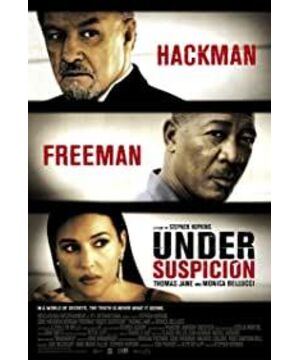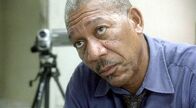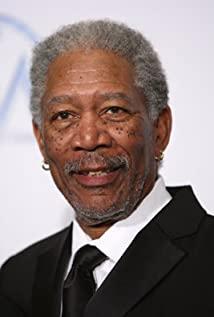Throughout the entire film of "Under Suspicion", after experiencing the wonderful "showdown" of two veteran acting stars (Gene Hackman and Morgan Freeman), the somewhat bizarre ending at the end revealed the fact that the The theme of the film - the relationship between reasoning and reality. Friends who have watched "Under Suspicion" will definitely ask: "Why did the old detective's reasoning so wonderfully turn into a false fantasy in the end?" Next, I will combine Karl Popper's classic book - " Some points in the book The Logic of Scientific Discovery try to answer the above question.
The first half of the film tells the story of a detective who, through his own evidence and reasoning about the evidence, made the lawyer tell his secrets step by step, and finally prepared to plead guilty according to the logic of the detective. However, the plot suddenly took a 180-degree turn at this time - it was discovered that the real murderer was someone else. Then, at this time, a series of seemingly impeccable reasonings of the previous detective were overturned by objective facts. Although the entire logical reasoning process seemed perfect, the proposition that logical reasoning was not equal to objective facts was once again proved.
Logical reasoning is nothing but the process of proving a theory or hypothesis (called universal statement by Karl Popper) by means of inductive logic based on some observations or experimental statements (called singular statements by Karl Popper). Karl Popper has a very accurate exposition of this empirical science system based on inductive logic: "In the field of empirical science, they construct hypotheses or theoretical systems, and then use observations and experiments to test them against experience."
Obviously, this process of transitioning from singular statement to universal statement—inductive logic—is bound to be mixed with human emotional factors and cognitive limitations. Moreover, according to this logical reasoning point of view, in order to prove the correctness of the method of inductive logic, the method of inductive logic must be used. This method of proving yourself, or higher-level logical induction proving the underlying logical induction, will inevitably lead to what we in Computer Science and Technology often call "deadlock", which is an endless loop or endless waiting. Leaving aside the question of the "probability" of science, from the strict truth-seeking spirit, this empirically based logical verification is bound to inevitably make mistakes. This is the reason why the detective in "Under Suspicion" completely contradicts the objective facts when there are no logical errors. This gave me a great inspiration, that is, after just my thinking and reasoning, no matter how certain it seems, the accuracy rate cannot reach 100%. Karl Popper also wrote in his book: "Subjective experience or a sense of certainty can never justify a scientific statement, and it cannot play any role in science except as an empirical (psychological) object of study, however strong the sense of certainty may be. , it can never prove a statement." Then, we have to find a more effective way to prove the correctness and scientificity of things.
So Karl Popper proposed a very meaningful and creative standard to distinguish the scientific and non-scientific of things - falsifiability, and the scientific method is not induction, but deductive testing.
Of course, the Inspector's reasoning hypothesis is scientific in itself because of its falsifiability (which coincidentally is the conclusion that is ultimately falsified). But the method he used, logical induction, became the source of the errors in this interrogation process.









